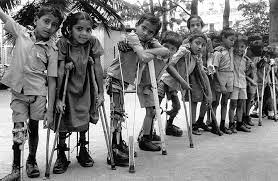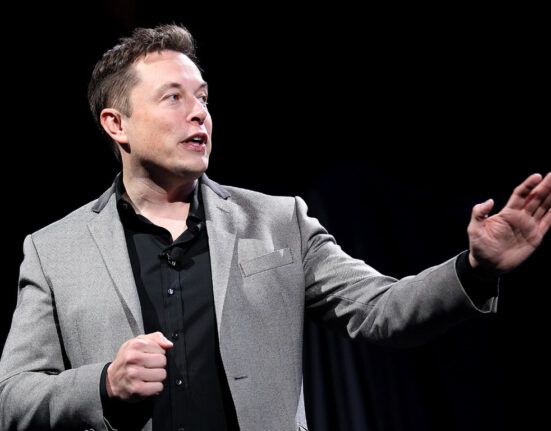Polio was one of the most dreaded childhood diseases. It can attack the nervous system and paralyze someone within hours.
If it paralyzes the chest muscles, people cannot breathe.
And the sarcophagus-shaped iron lung, which used a bellows to help the patient breathe, was once common in polio wards.
But it all feels like a long forgotten era, and for good reason.
This disease has almost been wiped off the face of the planet.
The last case of wild polio in the UK was in 1984.
And that is the context in which to consider the news that polio has paralyzed a young man in America and that a million children in London are being urgently vaccinated.
Urgent Polio Boosters For London Children
What is polio and how can you prevent it?
Since they were developed in the early 1950s, vaccines have completely replaced polio.
The World Health Organization estimates that without them, 20 million people who can walk today would be paralyzed.
The disease became a global problem in the 1980s and has now spread to only a few countries.
And that includes Africa’s glorious victory in declaring itself polio-free in 2020.
But although Afghanistan and Pakistan are the only countries where polio is still circulating, the epidemic continues to threaten the rest of the world.
First, these countries can plant elsewhere.
The first case of wild polio in Africa in more than five years was reported in a three-year-old girl in Malawi.
It was the same strain found in Pakistan, although no one is sure how it traveled.
And in February, Malawi had to declare an outbreak of wild polio.
Second, vaccines used in endemic countries and to control outbreaks may themselves pose a problem.
And this is what is now affecting the UK and other countries.
The most potent polio vaccine uses oral drops of a weakened but live form of the poliovirus.
It is inexpensive, easy to administer, and induces excellent immunity, making it ideal for responding to pandemics.
However, it works by causing an infection in the stomach, so it is found in people’s feces, from where it can spread to others.
On one level, this is beneficial because it indirectly immunizes others.
But as it passes from person to person, it can change until it causes paralysis again.
This is known as vaccine-derived poliovirus.
London Sewers
The oral vaccine has been wildly successful, but its ability to revert to its most virulent form is why countries plan to switch to injections of the killed virus once polio is eradicated.
The UK has been using the injection since 2004.
What is now brewing in London’s sewers is a virus that comes from the use of oral vaccines in other parts of the world.
Some samples show signs of regaining the ability to cause paralysis, and genetic analysis suggests the virus is spreading.
It is also directly related to patterns found in sewage in the US and Israel.
Low Rate
- For the fully vaccinated, the risks are negligible.
- But the risk of stroke is between one in 100 and one in 1,000, depending on their age.
- In general, vaccination rates in the UK are very high, but there are pockets where very few people have received the vaccine.
- Across the capital, 15% do not receive three doses of the vaccine in their first year of life.
- In some counties, it rises to nearly 40 percent.
- And these low rates are a possible explanation for why the virus is spreading.
Harmful Efforts
Polio feels like a disease of the past, but the virus found in London and the paralytic case in the US are a strong wake-up call to each of us, and especially to our governments, about polio. Can’t be satisfied.
The Progress We Have Made Can Be Undone
Scientific advances should make a difference: for example, a new, more stable version of an oral vaccine is less likely to cause recurrent strokes.
But ultimately, polio needs to be tackled in the remaining two endemic countries. Otherwise, the risk of outbreaks will always be there.
And this is a challenge not only from science or money, but also from politics and society
The United States was criticized for undermining efforts to defeat polio when it used a fake vaccine program to track down former al-Qaeda leader Osama bin Laden.
We are very close to eradicating polio, but we have been close for a long time.
Disease is a low risk, but it won’t end here until it ends everywhere.
For more information, please visit Friday night funkin unblocked games 911.








6 Comments